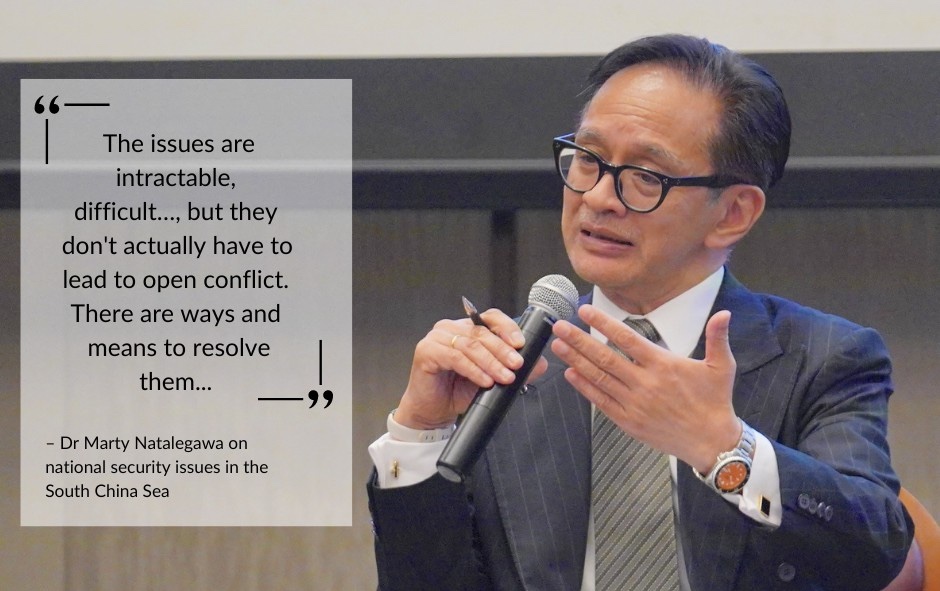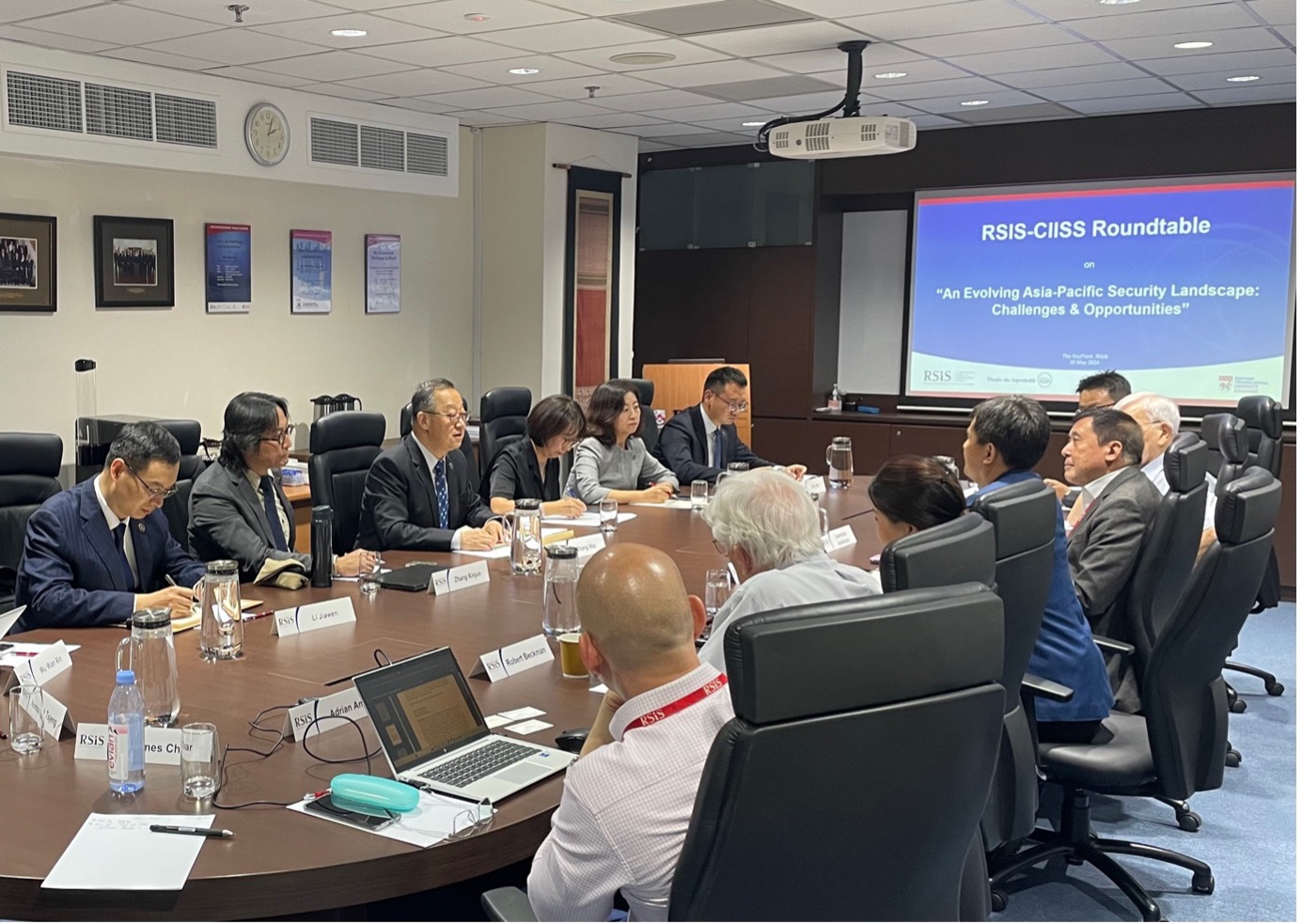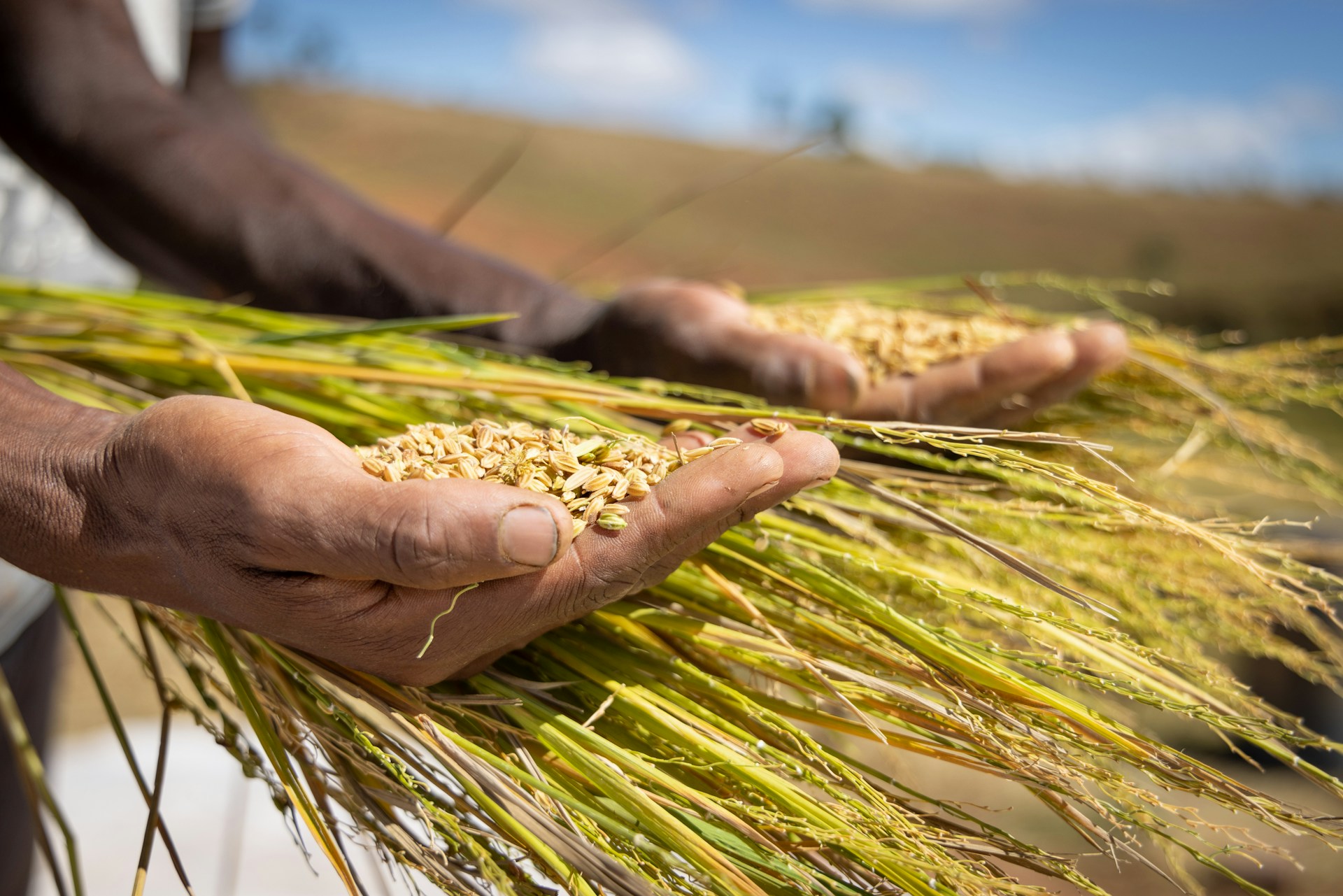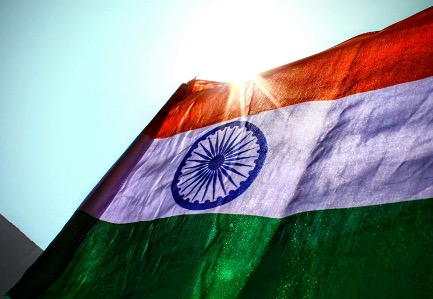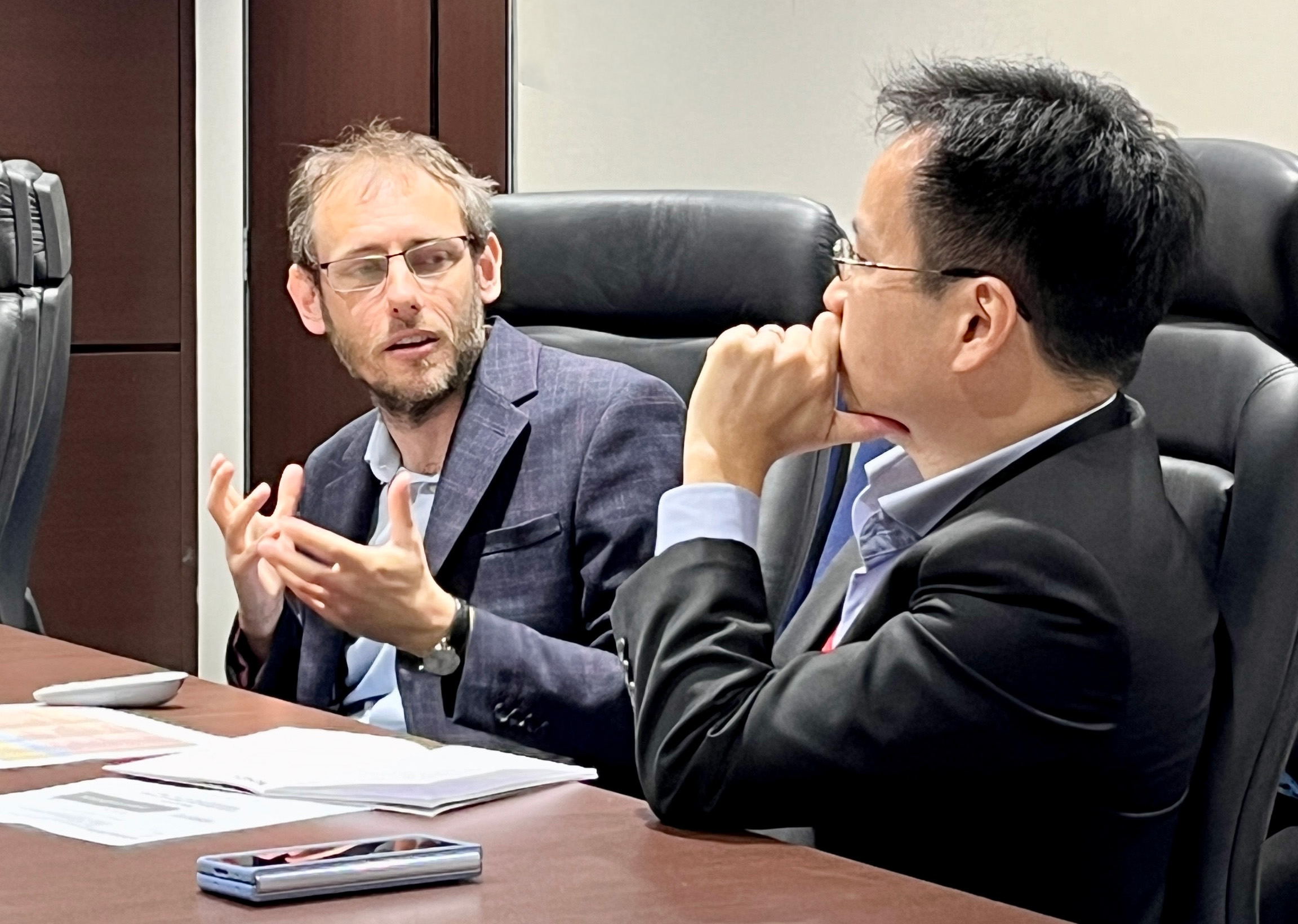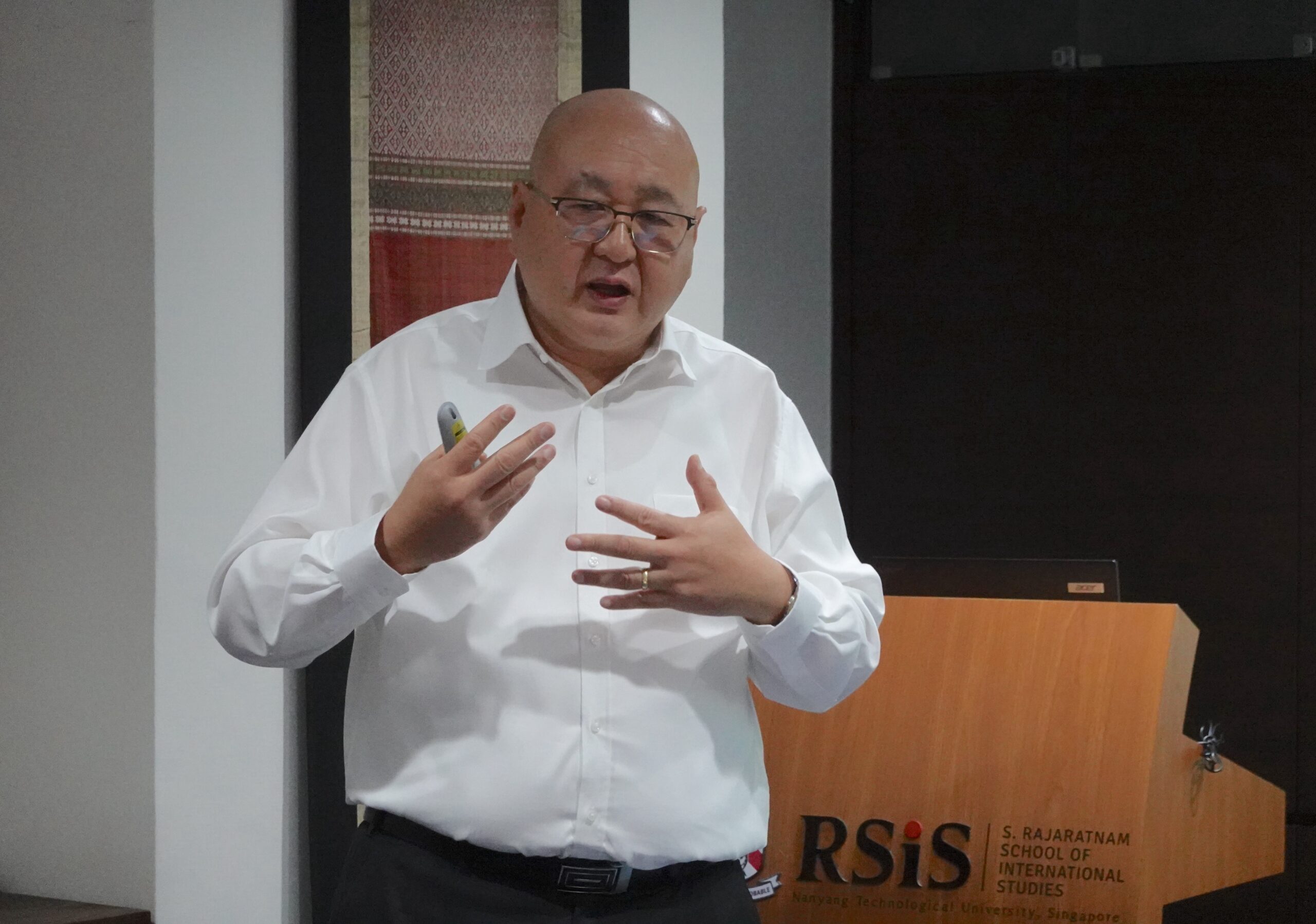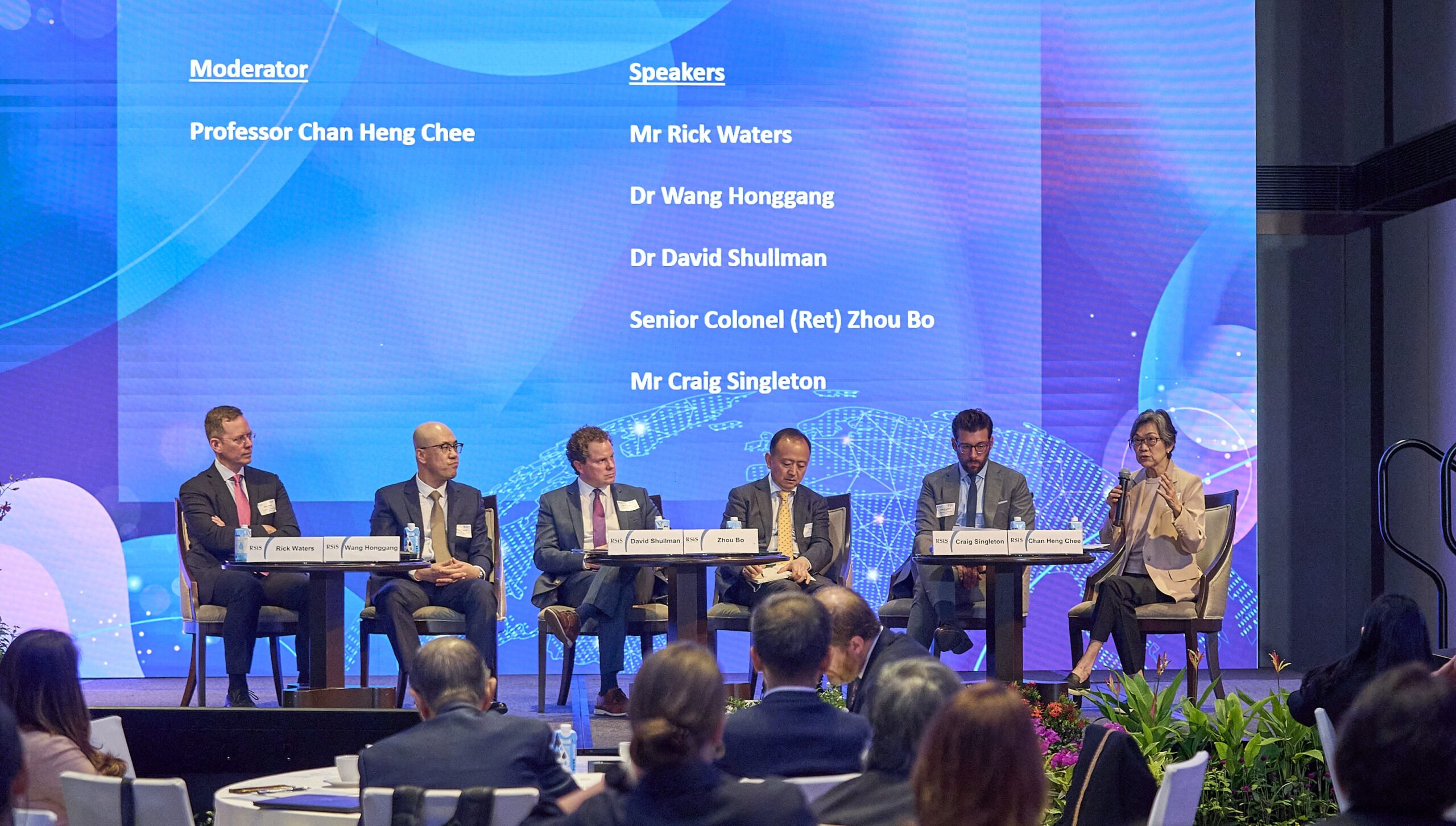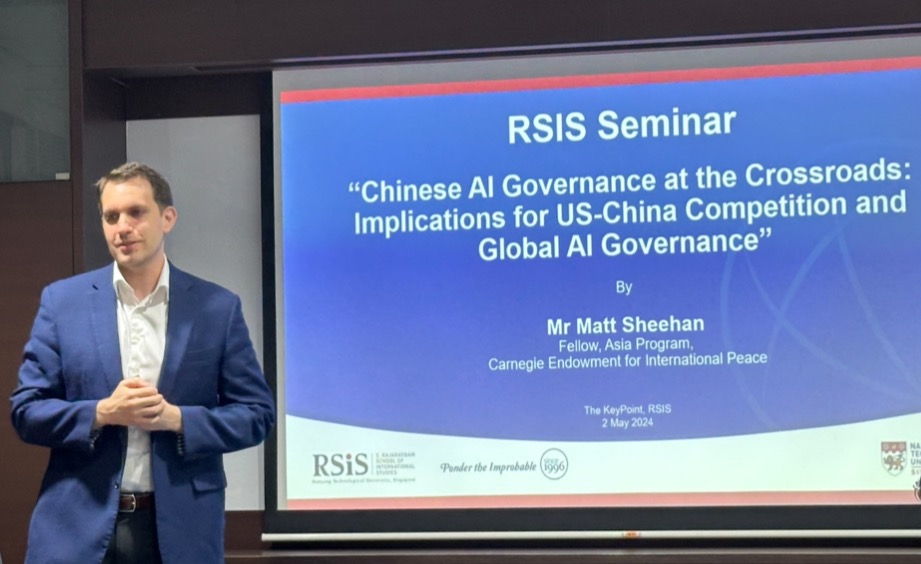
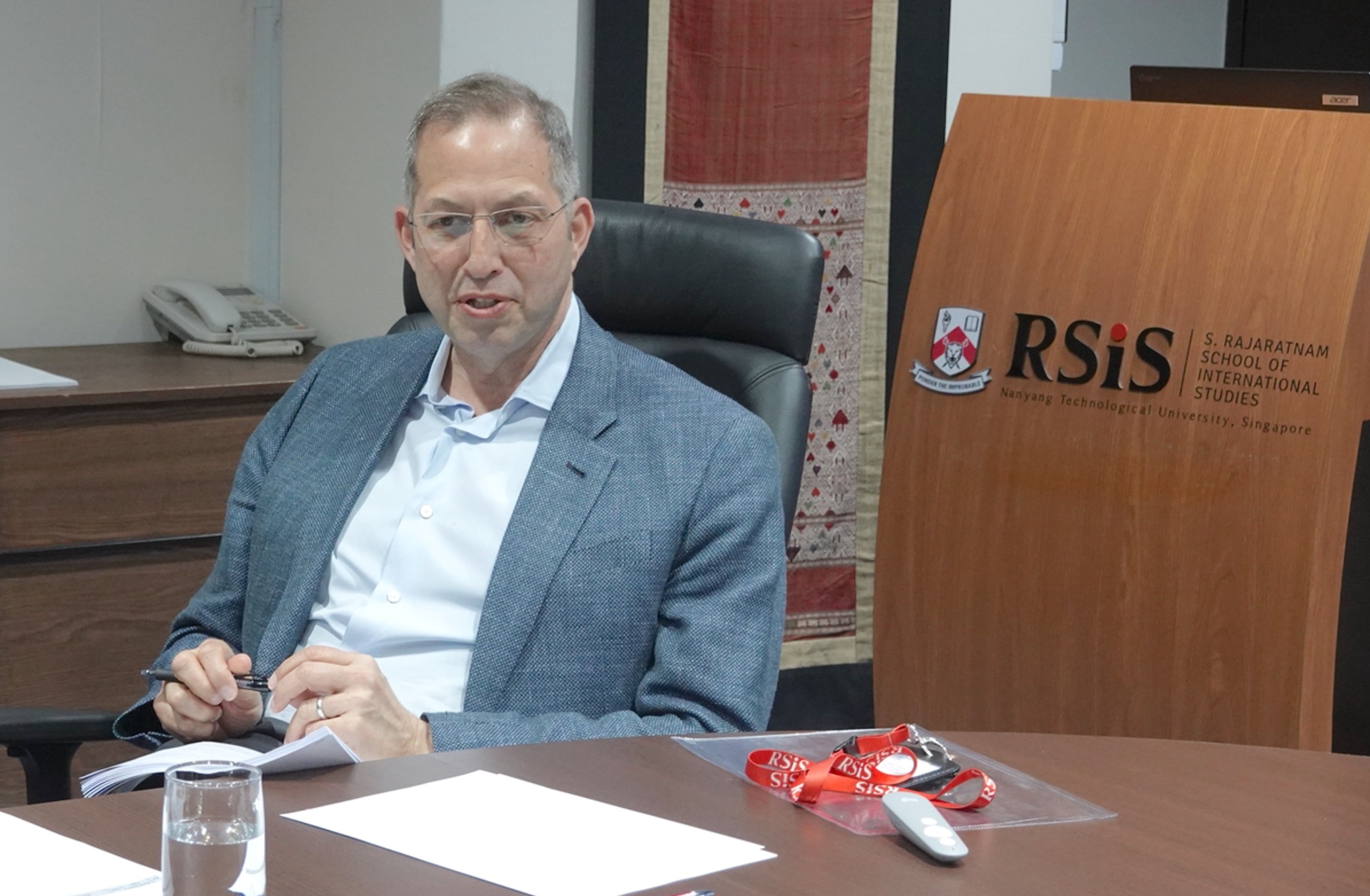
Ambassador Derek Mitchell, Senior Advisor to the President and Asia Program at the Center for Strategic and International Studies (CSIS) in Washington, DC, delivered two RSIS Seminars on 16 and 23 May 2024 titled “Realists Need to Get Real: The Case for Democracy” and “The Tragedy of Myanmar – Seeing Through a Glass Darkly.”
In his first Seminar, Amb Mitchell argued for why democracy matters for Southeast Asia. Defining democracy as “transparent, accountable, inclusive, representative governance under the rule of law,” Amb Mitchell said that these principles make states less likely to wage war and more likely to promote economic growth and development. He referred to studies that democracies have 20 percent higher GDP per capita, lower infant mortality and greater access to drinking water compared to non-democracies. In addition, he noted that while democracies may not always choose the best leader, they offer the most opportunities for peaceful self-correction via elections.
While noting that democracies can be frustrating, messy and slow when implementing policy, Amb Mitchell expressed that it is misguided to assume that people would reject their democratic agency and dignity due to cultural differences. He warned that autocratic states have been using disinformation to undermine democracies abroad and ensure their own political survival. Though international relations scholars have largely shied away from discussing the global state of democracy, he called on them to acknowledge the crucial role that democratic norms and governments play in the international order. He also said that the US should do more to define democratic norms.
In his Seminar on Myanmar, Amb Mitchell gave an overview of the country’s recent history and its geography, demographics and societal makeup. As a former US Ambassador to Myanmar, he drew on his experiences in the country to note that it was always challenging to form a unified national identity for the country given years of ethnic rivalries and diverse demographics. The military saw itself as the glue holding the country together, and allowed some limited reforms after 2010. However, he argued that if the brief period of reforms from 2010-2021 was Myanmar’s era of evolutionary change, the post-coup period is a time of revolutionary change, with the opposition united in the common goal of expunging the military from politics.
Opposition forces have found some success in convincing military members to defect to their side. However, this is where the opposition’s interests diverge, and there is no unified vision or roadmap for a future Myanmar, or even a clear leader. Despite recent successes on the battlefield, the junta still has a massive amount of firepower, and he does not foresee an end to the violence in the near future. In fact, Amb Mitchell warned that Myanmar might see a fracturing or federalisation of its political system, though it remains unclear which is more likely.
As the death toll rises and suffering of Myanmar’s citizens persists, Amb Mitchell argued for a larger role from international actors in supporting the people, providing humanitarian assistance while engaging and even supporting opposition forces.






